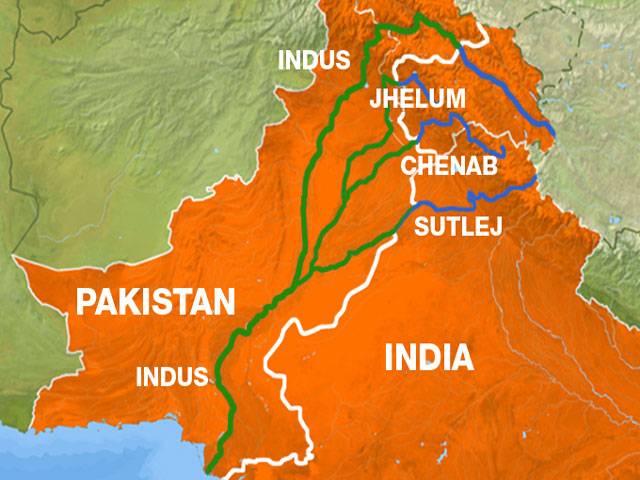LAHORE - India is going ahead with it plan to set up four hydropower projects on the River Chenab in Occupied Kashmir, ignoring serious objections raised by Pakistan that it does not have the right to do so, reliable sources told The Nation.
Pakistan has repeatedly called the neighbouring country to modify the designs of the four projects and avoid violation of Indus Water Treaty. However, India has not replied any of Pakistan’s letters, which, according to official sources, means it has no intention to remove Islamabad’s reservations. Sources in Indus Water Commission said it repeatedly asked Indian Indus Water Commission to change the designs, but they looked reluctant. They added the commission would now seek the federal government’s help to resolve the matter and if both the governments failed to reach a settlement, the issue would be taken up for international arbitration.
“India has almost finalised bidding of three power projects and work is in progress on the fourth one – Ratle Hydropower Project. They have not clearly refused, but it looks that the neighbouring country is adopting the same strategy that it had done during Kishan Ganga and Baglihar Dam,” added the sources.
Pakistan had raised technical objections over the designs of 850MW Ratle, 1,000MW Pakal Dul, 120MW Miyar and 48MW Lower Kalnai hydropower projects. Indus Water Commission of Pakistan had termed the projects’ design parameters a violation of the Indus Water Treaty.
“Pakistan has been seeking conclusive reply from the neighbouring country on the matter. We want clear and conclusive reply from India over our technical objections, but it seems India is not ready to address our concern,” said the sources.
It is worth mentioning here that the designs of these projects were provided by India more than a year ago. Pakistan has been asking India to provide information of its projects, but it did not do so, violating the Indus Treaty.
Under the provisions of the Indus Water Treaty 1960, the waters of the eastern rivers, Sutlej, Beas and Ravi, had been allocated to India and the western rivers, Indus, Jhelum and Chenab, to Pakistan except for certain uses allowed to India which included generation of hydropower.
Some water experts in Pakistan believe that India has carved out a plan to generate 32,000MW of electricity on the Pakistani rivers and will have the capacity to regulate the water flows that are destined to reach Pakistan. It is being considered by them that the proposed projects of India would drastically impact the water flows in the Chenab which irrigates most of the land in the Punjab province, the food basket of the whole country.
Friday, November 22, 2024
India ignores Pak objections to dams on Chenab
| Islamabad repeatedly asked neighbouring country to modify designs of four projects

Caption: India ignores Pak objections to dams on Chenab
Imran Khan granted release in Toshakhana-II case
4:30 PM | November 22, 2024
'New low in Pakistan's politics: Khawaja Asif reacts to Bushra's fresh allegations
4:27 PM | November 22, 2024
Mohsin Naqvi announces Rs500mn for National Police Academy
3:31 PM | November 22, 2024
Iceland's Reykjanes Peninsula sees 7th volcanic eruption this year
3:26 PM | November 22, 2024
Digital nomadism redefines work and travel across the globe
3:25 PM | November 22, 2024
-
Lahore tops global pollution rankings as smog worsens, AQI reaches hazardous levels
-
Lahore tops global pollution rankings as smog worsens, AQI reaches hazardous levels
-
Hunger crisis to increase in South Sudan, warns UN
-
Pakistan’s judiciary champions climate justice at COP29 in Baku
-
Punjab struggles with persistent smog as Met Office forecast rainfall
-
Punjab residents face escalating smog crisis as pollution levels soar across country
UN Crossroads
November 22, 2024
Smog Trade-off
November 22, 2024
Undersiege Again
November 22, 2024
Land of Vigilantes
November 21, 2024
United in Genocide
November 21, 2024
Proposal to counter increasing cases of harassment
November 22, 2024
Critique of RFE/RL’s Coverage of the SCO Summit
November 22, 2024
Real vs Reel
November 22, 2024
Independent Supreme Court
November 21, 2024
Fat Loss Fantasy
November 21, 2024
ePaper - Nawaiwaqt
Nawaiwaqt Group | Copyright © 2024





